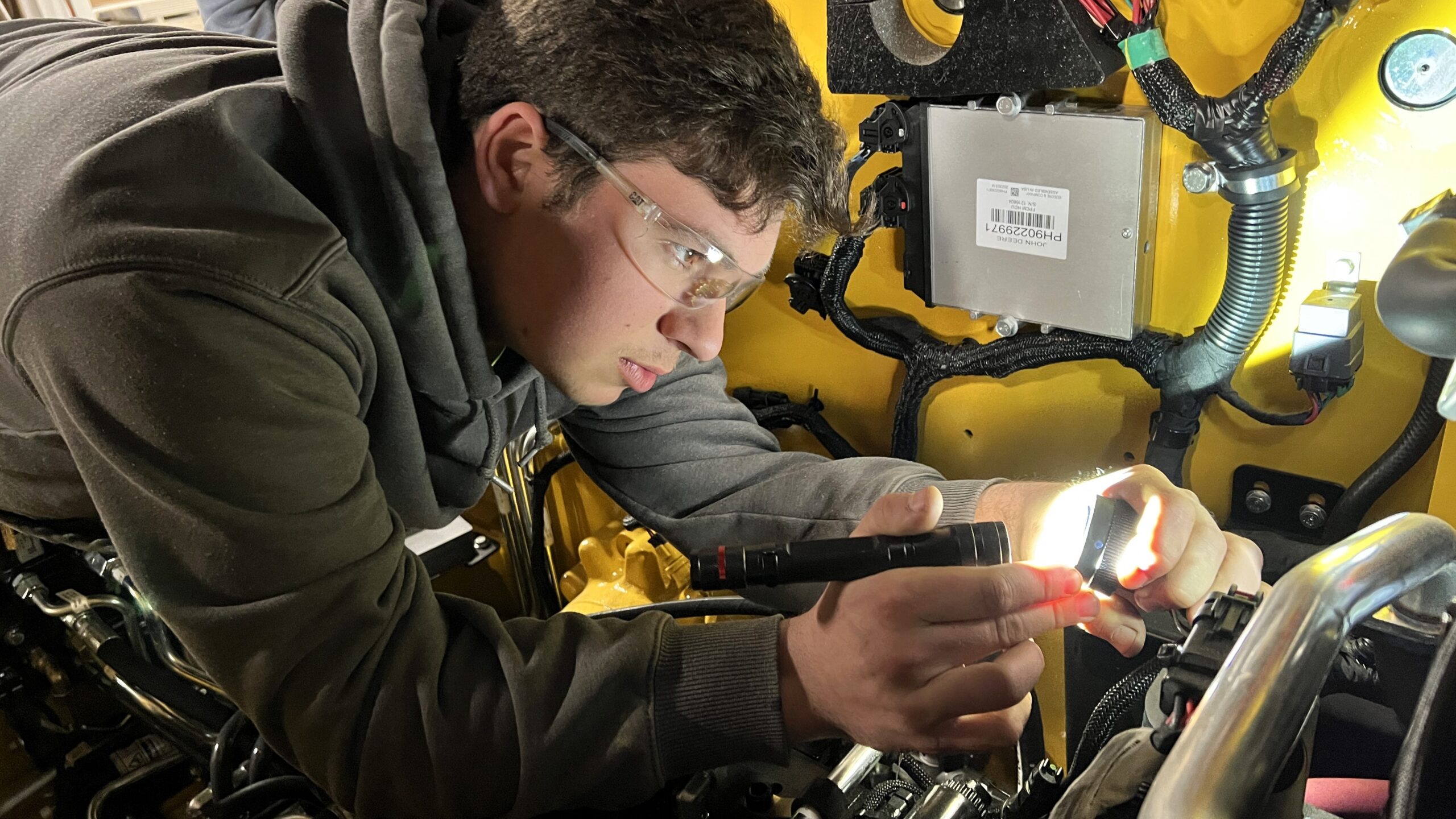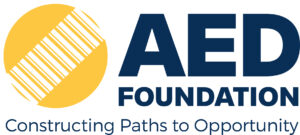Heavy Equipment Technology
Program Overview
Johnson College is no longer enrolling students in Heavy Equipment Technology. If you are interested in this area of study, please check out our similar programs – Diesel Truck Technology, Diesel Preventative Maintenance Technology, Aviation Technology, or Automotive Technology.

The two-year Heavy Equipment Technology Associates Degree program prepares students to succeed as well-trained, mechanically minded, hard-working technicians with heavy equipment dealers and contractors. Instruction involves classroom theory, live shop demonstrations, and repair of heavy equipment currently used in industry. Making repairs on actual equipment is vital to skill development.
Programmatic Accreditation
The Heavy Equipment Technology program at Johnson College is provisionally accredited by the AED Foundation.

Career Opportunities
Johnson College is no longer enrolling students in Heavy Equipment Technology. If you are interested in this area of study, please check out our similar programs – Diesel Truck Technology, Diesel Preventative Maintenance Technology, Aviation Technology, or Automotive Technology.
Heavy equipment dealers and earth-moving contractors are top employers. Jobs are also available with mining and logging companies. Most technicians work in indoor shops, but experienced field service technicians travel to job sites to perform repairs.
- Mobile Heavy Equipment Technician
- Construction Equipment Technician
- Field Service Technician
- Dealer Service Technician
Program Learning Goals
Johnson College is no longer enrolling students in Heavy Equipment Technology. If you are interested in this area of study, please check out our similar programs – Diesel Truck Technology, Diesel Preventative Maintenance Technology, Aviation Technology, or Automotive Technology.
Goal 1: Graduates will possess the skills necessary to correctly and safely operate equipment used in the heavy equipment industry.
Student Learning Outcomes – Students will:
-
- Practice the use of proper safety equipment.
- Visualize situations to predict any concerns before attempting them.
- Perform tasks following OSHA safety guidelines
Goal 2: Graduates will understand the importance of professional behavior within the Heavy Equipment Industry.
Student Learning Outcomes – Graduates will:
-
- Communicate with internal and external stakeholder in a professional and appropriate manner.
- Demonstrate professional skills as they relate to timeliness, accountability, and reliability.
Goal 3: Graduates will possess the skills necessary to obtain an entry-level heavy equipment technician position.
Student Learning Outcomes – Students will:
- Diagnose a diesel engine and repair a variety of different types of engines.
- Perform visual emissions inspections
- Troubleshoot hydraulic systems, mechanical systems, and electronics
- Maintain and repair drive train, steering, and suspension systems
Course Outline
Johnson College is no longer enrolling students in Heavy Equipment Technology. If you are interested in this area of study, please check out our similar programs – Diesel Truck Technology, Diesel Preventative Maintenance Technology, Aviation Technology, or Automotive Technology.
| CREDITS | |
| SEMESTER 1 | |
| Transportation Safety & Certifications | 2 |
| Introduction to Diesel & Heavy Equipment Technology | 2 |
| Heavy Duty Brake Systems | 1 |
| Fundamentals of Powertrain Technology | 2 |
| Powertrain and Brake Systems Lab | 2 |
| College Algebra I & Trigonometry | 3 |
| Welding and Flame Cutting for Vehicles | 1 |
| Welding and Flame Cutting for Vehicles Lab | 2 |
| First-year Experience | 1 |
| SEMESTER 2 | |
| Hydraulics I | 4 |
| Diesel Fuel Injection & Emissions | 2 |
| Diesel Fuel Injection & Emissions Lab | 1 |
| Physical Science | 3 |
| Electrical and Electronic Systems | 1 |
| Heavy Equipment Electrical and Electronic Systems | 1 |
| Industry Communication | 3 |
| SEMESTER 3 | |
| Diesel Engine Overhaul | 2 |
| Diesel Engine Overhaul Lab | 2 |
| Introduction to John Deere Machines | 1 |
| John Deere Vehicle Machine Electronics & Diagnostic Procedures | 3 |
| John Deere Vehicles Lab | 2 |
| Hydraulics II | 2 |
| Introduction to Business | 3 |
| Art Elective | 3 |
| SEMESTER 4 | |
| HVAC Vehicle Systems | 2 |
| HVAC for Heavy Equipment Vehicle Systems Lab | 1 |
| Customer Service and Our World | 3 |
| Applied Heavy Equipment Principles and Applications |
1 |
| Applied Heavy Equipment Principles and Application Lab |
3 |
| or Internship | 4 |
| Hydraulics III | 2 |
| John Deere Electronic Engine Maintenance Systems |
2 |
| MINIMUM CREDITS TO GRADUATE | 63 |
For course descriptions, please visit the Course Catalog.

